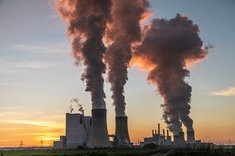Featured Quizzes
User Quizzes
Create Quiz
Data and Charts
Badges and Games
About JetPunk
JetPunk Shop
Dark Mode

A Level Geography Key Terms: Carbon
Key terms from the Edexcel A level syllabus
Rate:
Last updated: December 13, 2021
You have not attempted this quiz yet.
More quiz info >>
| First submitted | December 13, 2021 |
| Times taken | 5 |
| Average score | 78.3% | Report this quiz | Report |
20:00
Enter answer here
0
/ 23 guessed
Time Used
00:00
Best Time
00:00
The quiz is paused. You have remaining.
Scoring
You scored / = %
This beats or equals
% of test takers
also scored 100%
The average score is
Your high score is
Your fastest time is
Keep scrolling down for answers and more stats ...
|
|
Comments
No comments yet
New and Popular
Save Your Progress
Copyright H Brothers Inc, 2008–2024
Contact Us | Go To Top | View Mobile Site
